If your cat could talk, shrimp would likely be at the top of its wish list for tasty treats. But can cats really eat shrimp, and is it actually good for them?
In this article, we’ll cover everything you need to know before feeding shrimp to your furry friend – from potential risks and precautions to health benefits.
So, grab a snack of your own, pull up a chair, and let’s dive into your cat’s soon-to-be favorite treat!
Can Cats Eat Shrimp?
Yes, cats can eat shrimp, but not raw shrimp.
According to veterinarians, shrimp absolutely must be properly cooked and cleaned before feeding. This is key to avoiding tummy troubles and bacterial infections in your furry feline friend.
How to Cook Shrimp for Cats
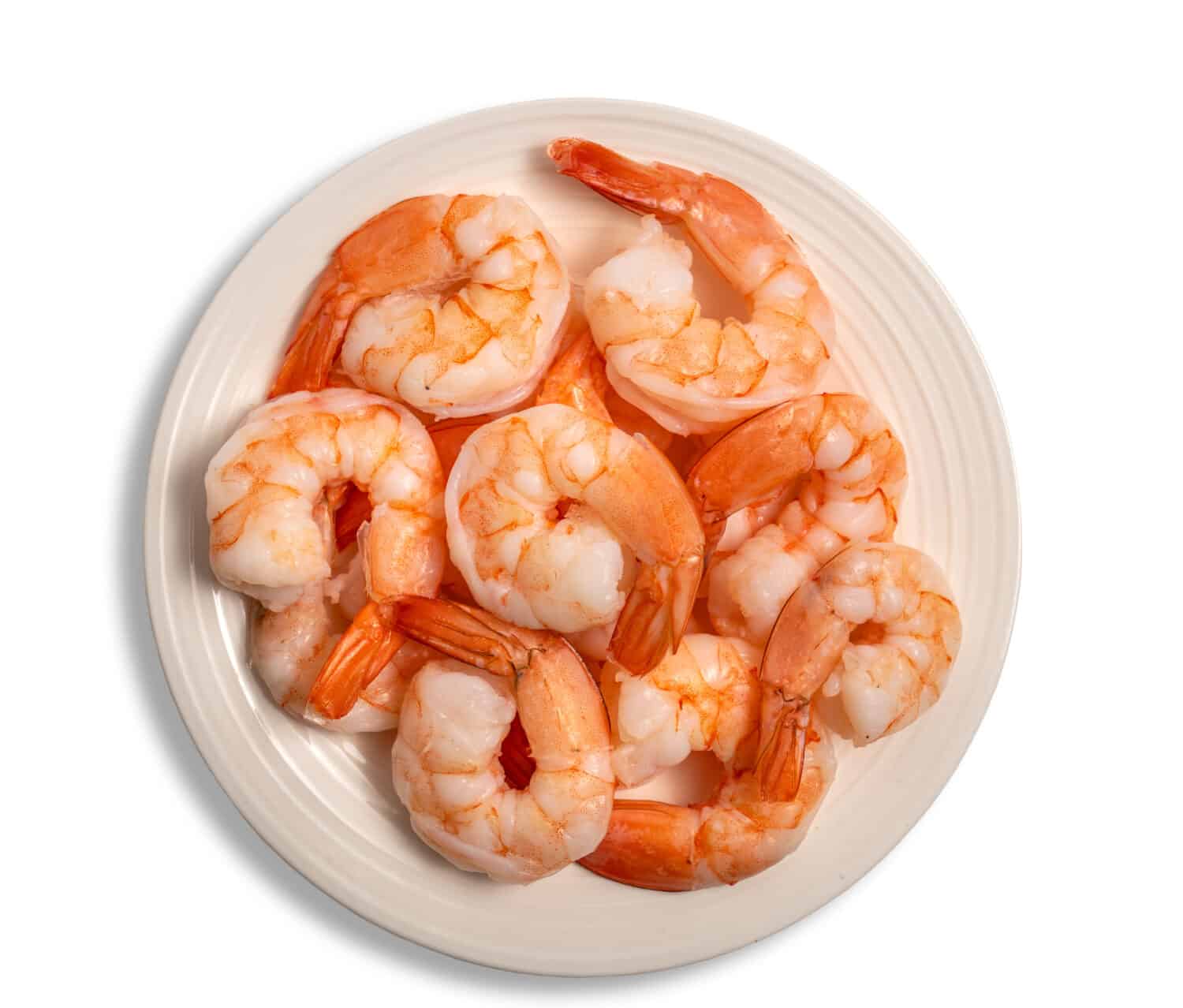
Before you feed your cat shrimp, you must cook it properly. Cook it plain and include no seasonings. Pictured is a plate of boiled shrimp.
©KungCrayfish/Shutterstock.com
Here’s how you can cook shrimp for your cat yourself:
- Clean the shrimp. Always remove the tail, shell, and head because cats can struggle to digest these tougher parts of shrimp.
- Make sure that the shrimp is properly cooked by boiling or steaming it.
- Avoid adding seasonings or additional fat, such as oil or butter, as they can cause tummy issues or worse toxic effects in cats. Bland is better than savory in this case!
Can Cats Eat as Much Shrimp as They Want?
Not exactly.
Firstly, just like humans, cats can be allergic to shrimp or seafood – and your furry friend may be, too. We suggest experimenting with tiny bits of shrimp before increasing the dosage, and we strongly recommend consulting a veterinarian.
Secondly, cats shouldn’t eat “as much shrimp as they want.” As with all things, moderation is key.
Shrimp should also not be the main ingredient in their diet because it inhibits the production of vitamin K. Prolonged and excessive use of shrimp can, therefore, be harmful to cats’ heart and bone health.
Are There Any Risks I Should Be Aware Of?
Like most foods, shrimp can cause certain side effects in more sensitive kitties. Here are some to keep in mind:
- Bacterial infections. Much like all fresh meat, raw shrimp can contain certain harmful bacteria. In seafood, the most common bacterium is called Vibrio. It can cause symptoms such as swelling, redness, and diarrhea even in humans. Avoid this risk by properly cooking the shrimp before feeding.
- Iodine poisoning. Seafood in general has high iodine content, and shrimp is no exception. This won’t be a problem for most kitties, though, so you should only be wary of it if you know your cat is sensitive to iodine.
What Are the Health Benefits of Shrimp for Cats?
With the precautions out of the way, let’s focus on the many health benefits of shrimp for cats.
This petite crustacean is nutritionally rich and packed with protein, vitamins, minerals, and other nutrients that can boost your cat’s health and well-being. Let’s explore the benefits one by one.
#1: Healthy Skin and Fur
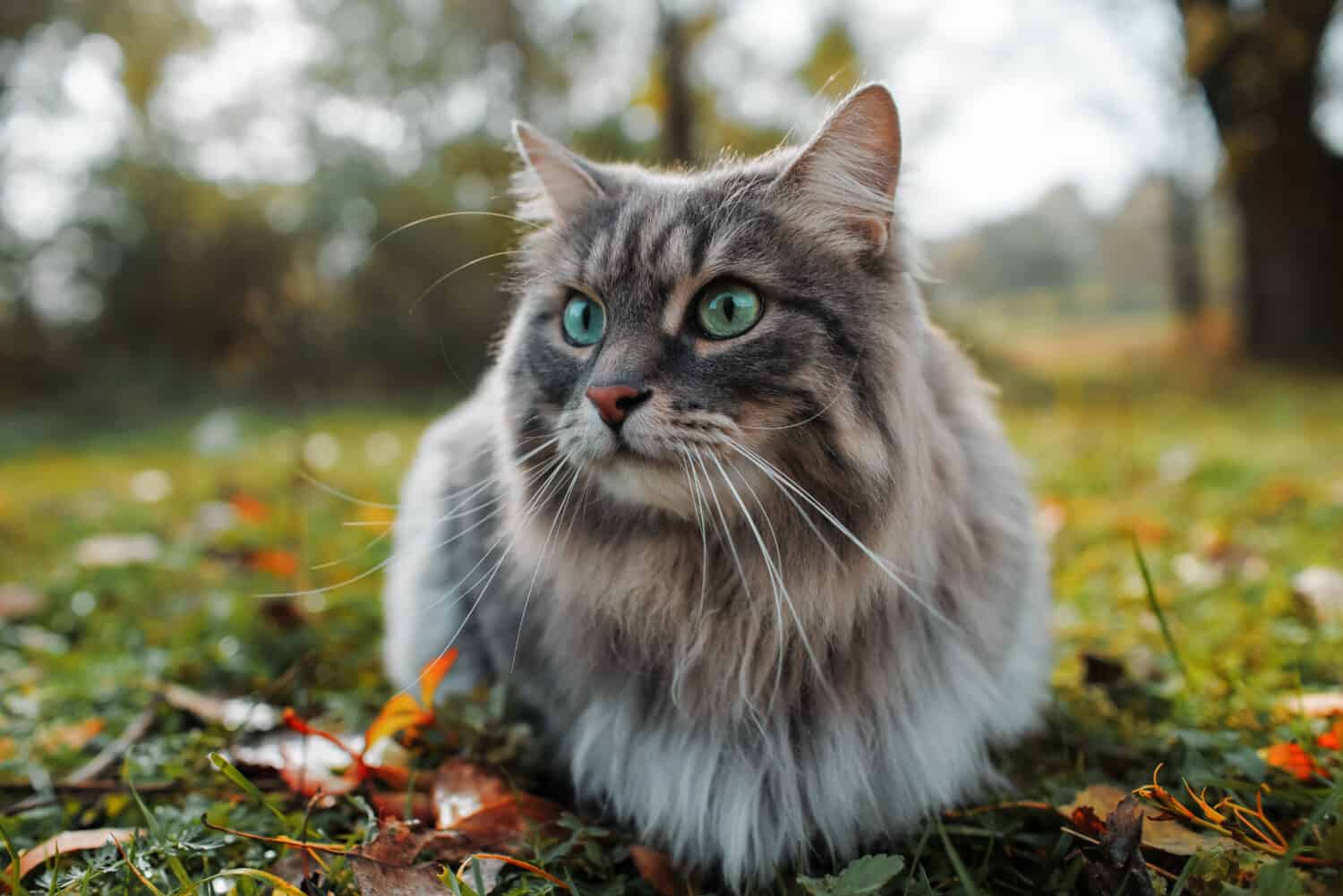
Shrimp can help keep your cat’s fur full and glossy.
©Sergio Photone/Shutterstock.com
Shrimp contains small amounts of healthy omega-3 fatty acids, which promote healthy skin and a glossy, fuller coat. This makes them especially beneficial to kitties prone to allergies, hotspots, or excessive shedding.
#2: Energy and Regeneration Boost

Shrimp can also give your cat more energy to play!
©Casey Elise Christopher/Shutterstock.com
Shrimp is a great source of lean protein for cats, containing around 19 grams of protein per three-ounce serving. Protein helps keep cats energetic and in good shape, as well as boosts muscle, organ, and tissue development and repair.
In addition to protein, shrimp also contains high levels of energy-boosting vitamins, including niacin, B-12, and B-6.
#3: Immunity Boost
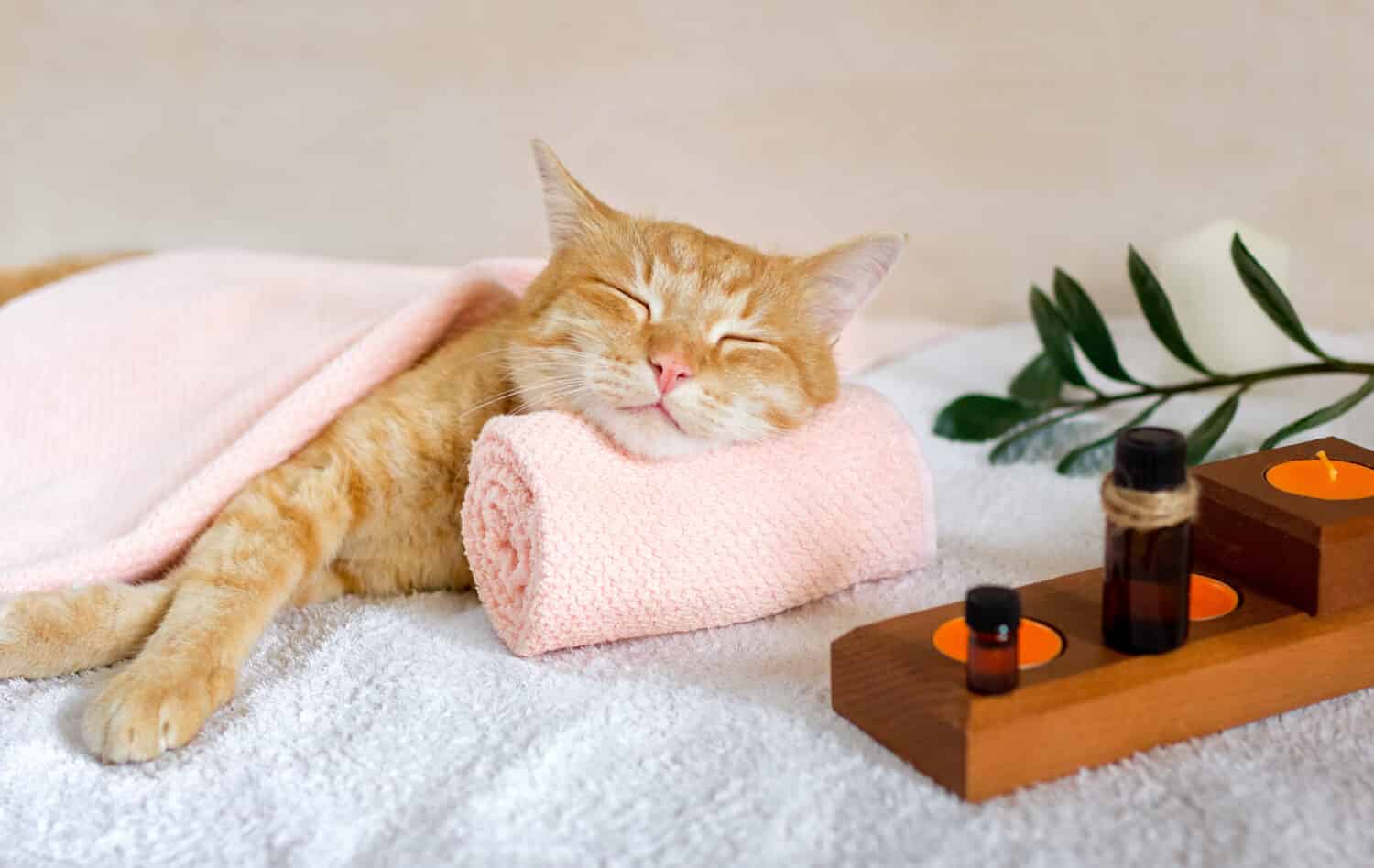
Shrimp supports your furry friend’s overall well-being.
©Olga Smolyak/Shutterstock.com
Shrimp also contains a number of important minerals, such as selenium, zinc, and phosphorous. These help support kitties’ overall health and vitality and makes it easier for them to fight off disease and infection.
#4: Weight Loss and Management
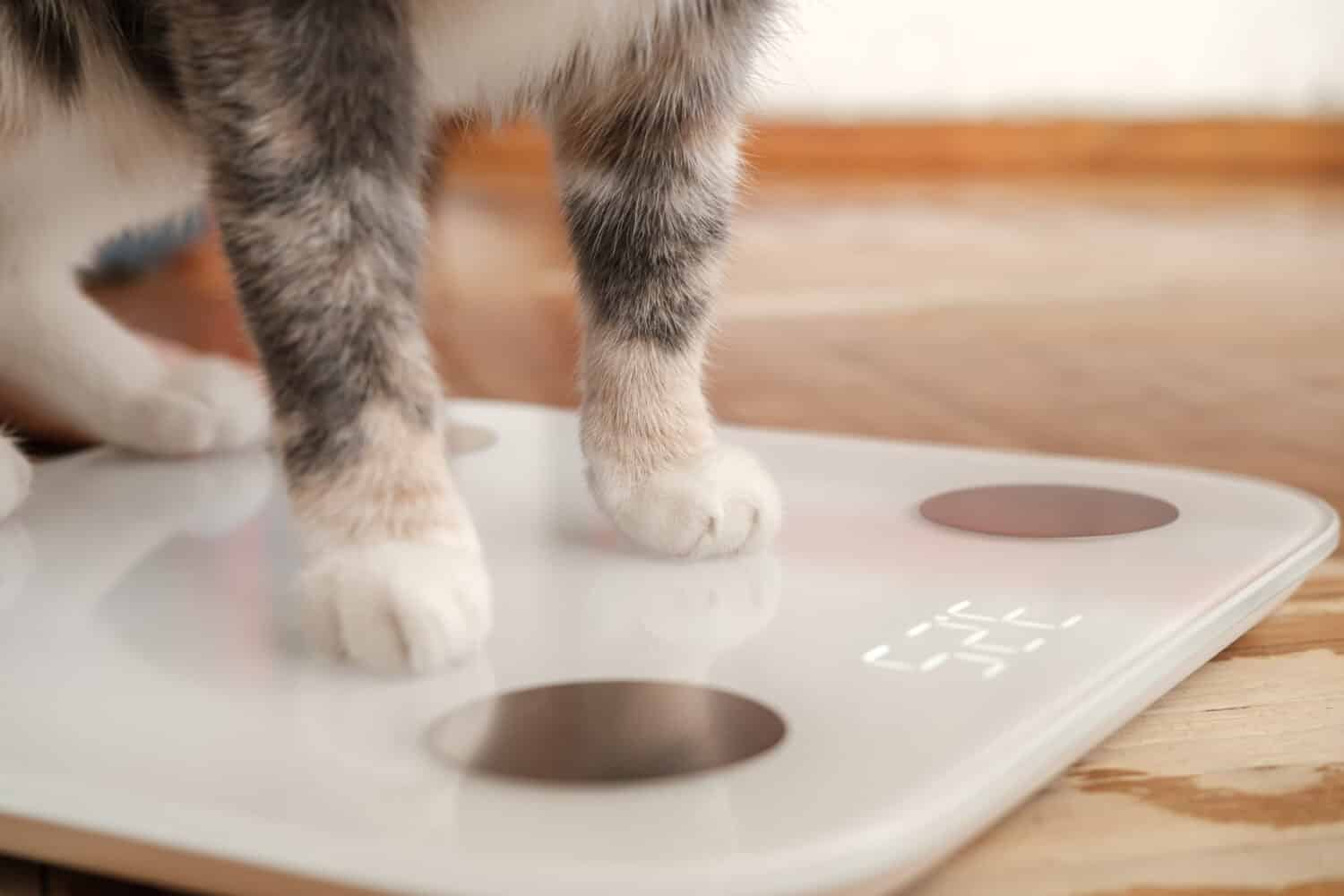
Keep your kitty nice and fit with a little bit of shrimp.
©Koldunov Alexey/Shutterstock.com
Shrimp alone won’t lead to weight loss, but using it as a replacement for more calorie-rich foods might.
Besides being overall low in total fat, shrimp also mostly contains the heart-healthy unsaturated kind of fat. Unsaturated fat can help your kitty feel fuller for longer periods and minimize the chances of packing on pounds. It’s also good for their heart health, unlike other types of fat.
This makes shrimp the purr-fect option for overweight and obese kitties – as well as those with a serious case of the munchies!
#5: Healthy Digestion
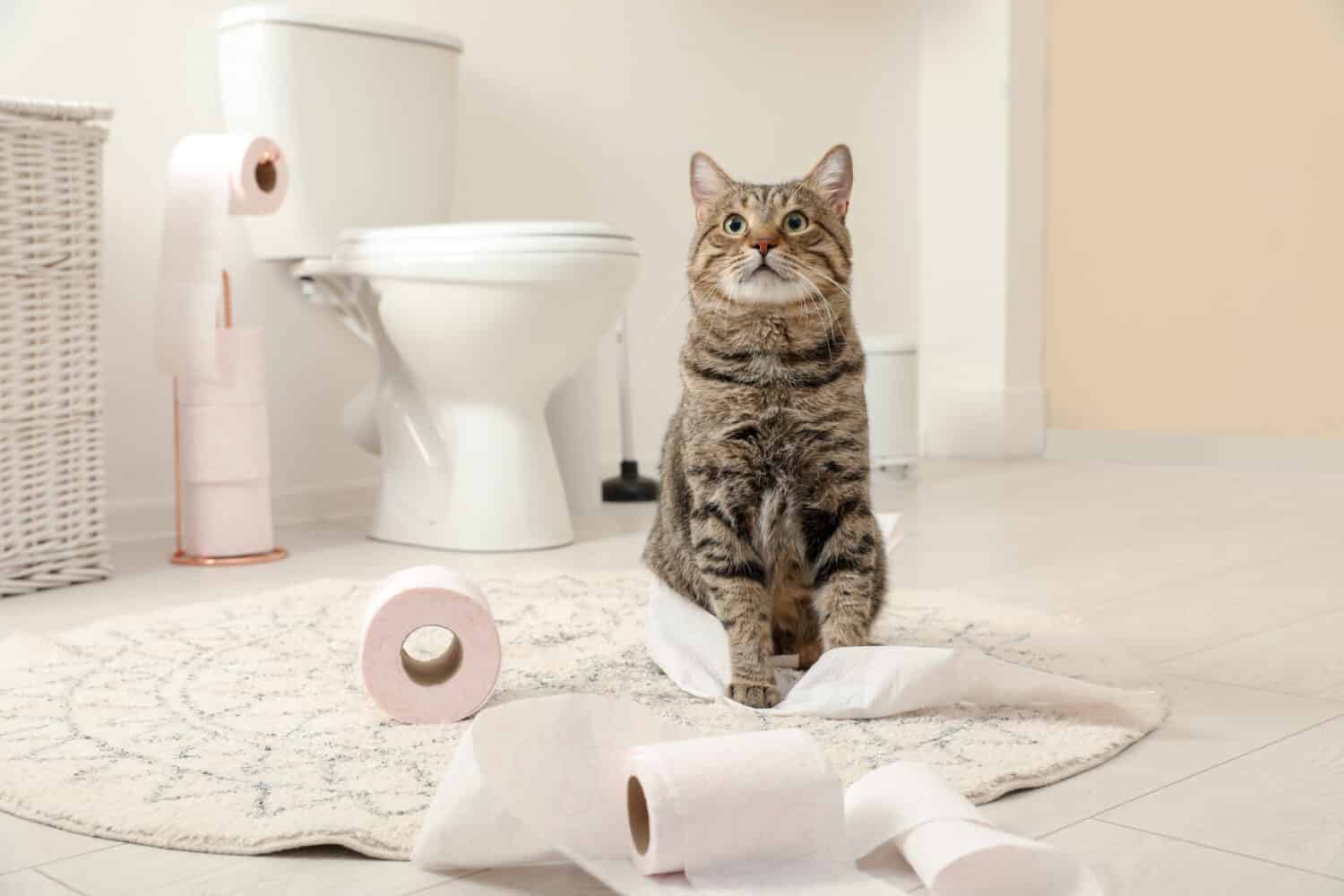
Shrimp may help keep “things” regular.
©New Africa/Shutterstock.com
Shrimp is filled with so much great stuff that can aid your furry feline’s health.
- Collagen in shrimp help cleanse cats’ digestive systems and stimulate the muscles that push food along the intestinal tract. Basically, this can give your kitty’s digestive tract a helpful scrub-a-dub-dub and ensure things are running smoothly down there.
- The B vitamins and amino acids in shrimp, which may support a healthy metabolism.
So, if you need help with getting your kitty to go regularly or relieving constipation issues, shrimp may just do the trick.
#6: Improved Cognitive Function
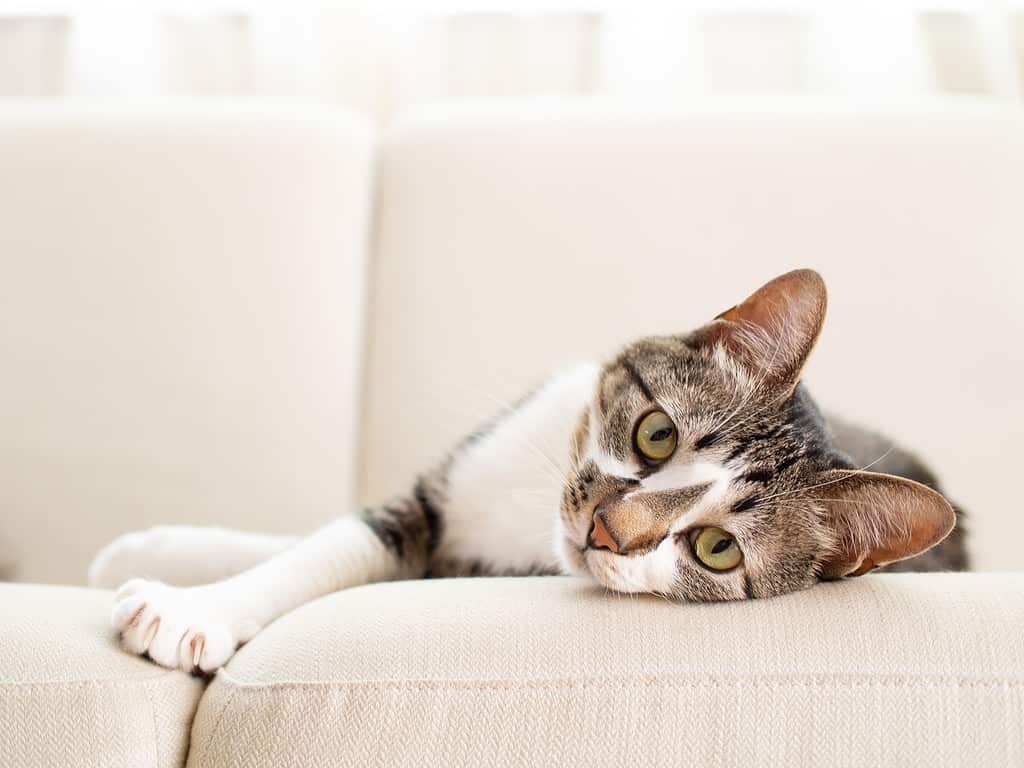
Keep your kitty sharp with an occasional shrimp.
©kaorinne/iStock via Getty Images
Shrimp is rich in choline, a nutrient that may aid with memory and other cognitive functions and even help treat traumatic brain injury.
This makes shrimp a valuable addition to your cat’s diet, especially in their senior years.
#7: Hydration
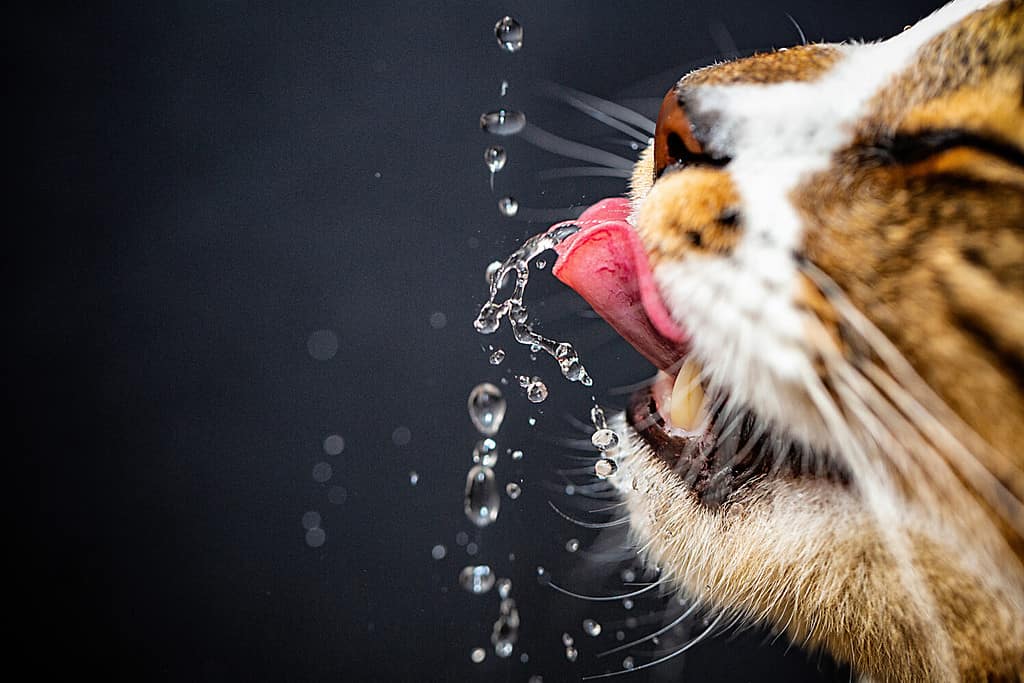
Shrimp contains a
lotof water.
©AltamashUrooj/Shutterstock.com
Shrimp has high water content, clocking in at around 80% H2O. So, giving your kitty some juicy shrimp is an easy way to sneak in extra fluid and keep them hydrated – especially if they have a low water intake or turn their nose up at water bowls.
Proper hydration can further improve cats’ urinary health and overall well-being.
#8: Anemia Prevention
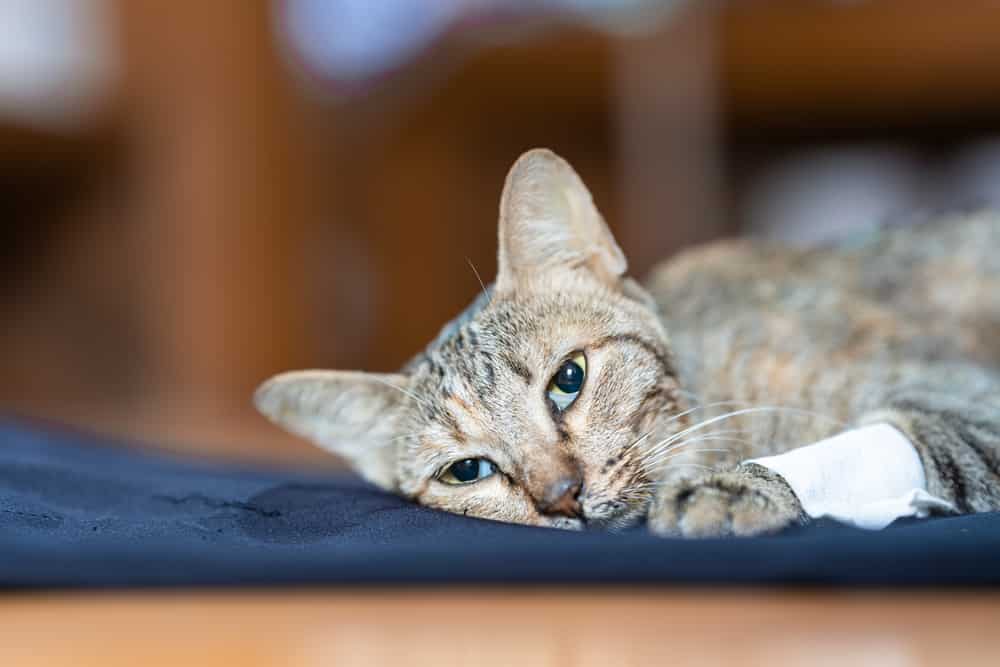
Shrimp also contains a lot of iron, making it especially beneficial to anemic cats.
©Oporty786/Shutterstock.com
Iron is incredibly important for preventing and aiding anemia, as it helps produce red blood cells and ensure proper oxygen transport throughout the body.
Luckily, with 100 grams containing around 3 mg of iron, shrimp is pretty packed with this vital mineral compared to many other foods. This gives you one more reason to include an occasional shrimp in your cat’s diet!
An Added Benefit – A Tasty Treat for Your Cat!
Last but not least, let’s not forget that most cats looove shrimp.
Using it as an occasional treat or reward can be a great way to strengthen the bond between you and your feline companion or to show your appreciation. It will surely make your fur baby purr!
FAQs
Why do cats love shrimp?
Cats love shrimp for two main reasons: its texture and flavor.
Shrimp has a specific plump-and-chewy texture that cats find fun to munch on. We don’t know exactly why that’s so, but their predatory hunting instincts may have something to do with it.
But let’s not forget about the shrimp’s heavenly flavor. Most of us humans love it, so we can assume it’s the same for cats and their discriminating palates.
Can cats eat seafood?
Cats can eat all sorts of seafood! Besides shrimp, they can also eat tuna, sardines, clams, salmon, and scallops – just to name a few options.
The photo featured at the top of this post is © Maria_Usp/Shutterstock.com
Thank you for reading! Have some feedback for us? Contact the AZ Animals editorial team.






